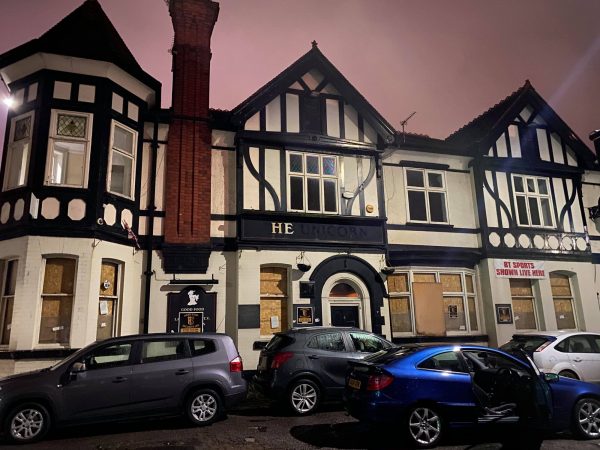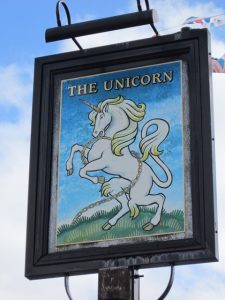
Salford is one of many regions facing a new ‘pub pandemic’, with nearly 25% of the UK’s pubs closing in the last ten years.
However, all is not lost – passionate pub conservationists such as CAMRA’s Steve Davis and Facebook activist, Lee Hodson, are both intent on their work to rescue their locals.
It’s been a busy week. Piles of leftover work lay forgotten at the office ready for the Monday morning blues to deal with. Bags of exhaustion hang down from your eyes after yet another week of early morning get-ups and rush hour traffic. A Friday night calls for one thing only – the local pub. This traditional British institution acts as a pillar for the local community to relax and socialise (and occasionally stumble home from). But with around 55 of Salford’s pubs closing their doors for the final time in the last 17 years, it begs the question: what can Salford’s community can do to save it’s locals?
According to The Office of National Statistics, almost 25% of the UK’s pubs have closed in the past ten years – that’s nearly 11,000 small businesses and independent alehouses.
The decline is thought to be a result of corporate chains such as the 879 Wetherspoon pubs as well as the 4,400 Enterprise Inns inundating the market.
Suburbs of larger cities have thought to have taken a particularly hard hit to the trend – with Salford being no exception.
However, our city’s battle to save the beloved local extends far beyond these recent decades. The past 130 years have seen over 350 of Salford’s pubs shut down due to changes in ownership, redevelopment, or simply a lack of demand.
2021 marks the 58-year anniversary of ‘Black Sunday’, an iconic day in Salford’s history where eight pubs were scheduled to close around the Ellor Street area due to redevelopment. Pubs such as The Miners Arms and the Old House at Home are just a few of Salford’s pubs lost at the hands of that fateful Sunday.
Apart from the economic impact these closures have to the area’s sense of identity, they also pose a significant impact onto the local community who visit Salford’s pubs. With alehouses acting as an area to socialise, relax, and drink in a welcoming environment, pubs are thought to also have emotional and mental health benefits.
One organisation committed to spreading awareness on the benefits of pubs, as well as protecting the British local, is CAMRA (Campaign for Real Ale). The service, founded in 1971 by four beer- lovers, encourages people of all ages to visit their local and support small pub trade businesses by releasing pub guides and holding festivals. The group has branches around the country who focus on pubs within their area– one of which being Salford.
Steve Davis, 64, CAMRA secretary for the Greater Manchester region, said: “To a certain extent, over time, the pubs are not what they were. They were the hub of working-class people, particularly in Salford – where the working man would go to escape for an hour or two.”
Steve believes the role of the pub in our society, especially in Salford, has changed due to social attitudes towards drinking, the smoking ban in 2007, and the demographic makeup of our area changing over time. Over the years the institution of the pub has had to adapt to its clientele, with Salford’s pubs now predominantly offering cheaper, family-friendly food and catering to certain ages.
He added: “Specialisation is something that’s come in in the past fifteen-twenty years and its one way of adapting what you offer for a particular audience.”
With Salford’s pubs having to adapt to their ever-changing customer, some still long for the nostalgic, friendly local of their yesteryears. One community pulling together to restore their former local are the Facebook group ‘Save&Reopen ! The Unicorn’.

Lee Hodson, 32, set up the Facebook page after The Wellington Pub Company announced plans to demolish the Unicorn Pub on Liverpool Street, Eccles, in favour of housing.
The pub, locally referred to as ‘The Triangle’ due to its iconic Georgian structure, has been used as a squatter camp for the past year since its closure in 2019. Locals have, in turn, expressed their love for the building and the memories it holds, as well as their desire for it to reopen as a pub again.
Lee Hodson said: “I set up the group on Facebook because the pub just has such character and potential, it would be such a shame to see it demolished. It holds so many fond memories and it was my local for years.
“People just want a traditional, working-class pub to have a pint and a chat, and our area doesn’t really seem to offer that anymore.”
However, despite the group’s best efforts, Salford Council has approved plans to demolish the building, to make way for 16 new houses on the site.
Despite the staggering drop in numbers of Salford pubs over recent years, hope cannot be lost for the future of local pubs. Communities and campaigns are working together to preserve this iconic British landmark and to develop it to suit the demands of the modern drinker in the Salford area. If pubs are to continue, we must consider the changing face of our society and cater to our locals before last orders are called.














Recent Comments